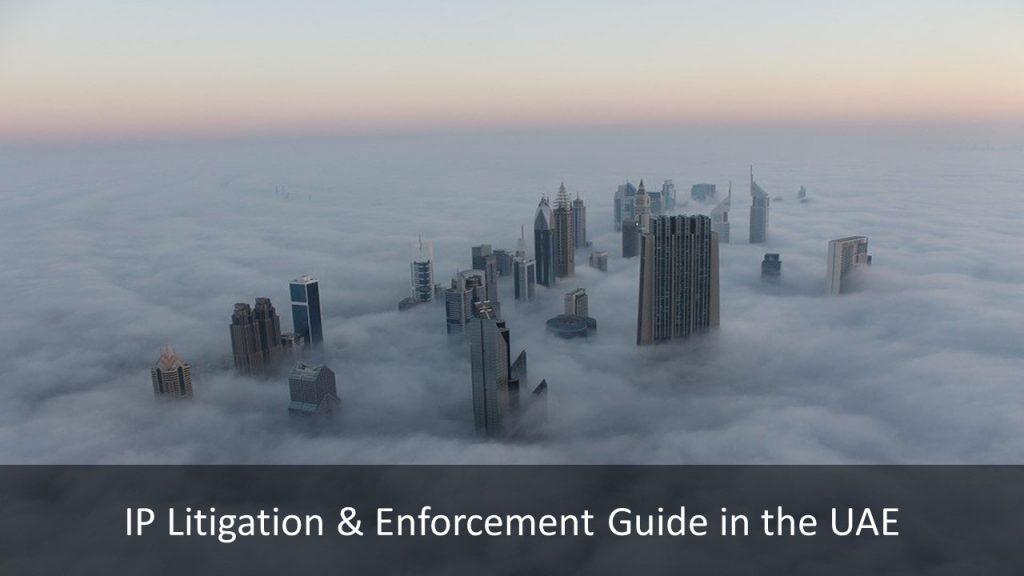There have been many questions and concerns about the procedure of IP litigation and IP enforcement in the UAE. However, in the IP industry in the UAE, we still haven’t had a clear guideline for rights holders as well as the parties related to its procedures. This article will address some common questions and concerns of the IP litigation and enforcement landscape in the UAE, primarily the sections revolving around civil and criminal enforcement.
Methods for enforcing IP rights in the UAE
The procedures for civil enforcement in the UAE
To initiate a civil action, an action of exchanging written memoranda and documentary evidence is required.
Furthermore, the Court may also appoint an expert of the matter relating to the dispute between the parties. The expert will approach the parties and gather information about the dispute. He/she will then prepare and submit a report to the Court to consult.
It should be noted that the expert’s report is only for reference by the Court and will have no real impactful meaning to the case if not followed by the Court.
Accordingly, both parties may find and present additional memoranda about the findings of the experts. They can also consult and bring their own experts to the Court for consultation, counter-arguments.
Note:
In exceptional cases, the Court may call oral witnesses.
A power of attorney is obligatory to bring civil proceedings. If the power of attorney is issued outside of the UAE, it will need to be notarized and legalized in the UAE Embassy.
Normally, first instance proceedings take 6 to 10 months to finish.
Proceedings are held in Arabic in onshore litigation. Yet, there are exceptions. For instance, the DIFC Courts and the ADGM Courts accept English.
If a party submits documents that are not in Arabic, the court will demand the other party to translate the submissions into English or other approved languages.
Interim injunctions and permanent injunctions
For interim injunctions, in some cases, applicants have the right to request the Judge of Urgent Matters to issue a precautionary measure order which is similar to an interim injunction.
For permanent injunctions, the Court may request the cessation of “the effects of an activity contravening the law” which is similar to a permanent injunction.
The criminal enforcement in the UAE
The criminal enforcement procedures in the UAE are highly similar to the civil enforcement procedures.
If there is a criminal prosecution for infringement, the Prosecutor may call for witnesses to testify before the trial.
It should be noted that civil parties may join the criminal proceedings and submit civil claims.
The judge who is in charge of the criminal case will have the power to decide on the civil claims
The IP treaties that the UAE is a member of:
- WTO – TRIPS Agreement;
- WIPO – Performances and Phonograms Treaty;
- WIPO – Copyright Treaty;
- Berne Convention;
- Paris Convention;
- Rome Convention;
- Beijing Treaty on Audiovisual Performances;
- Marrakesh VIP Treaty;
- Patent Cooperation Treaty.
You can see a list of UAE IP firms here.
